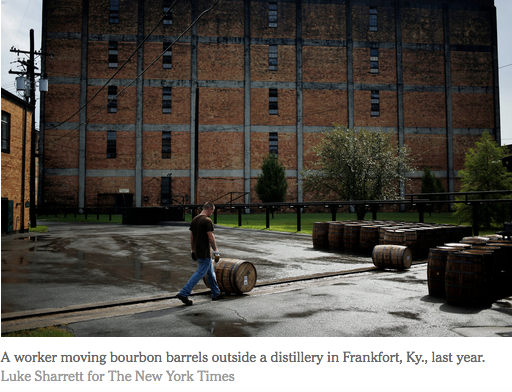Mr. Trump’s intention to pursue better trade deals for the American people is laudable, and done right it could add jobs to some of America’s long-suffering industries. But very few industries are truly domestic, with no interests abroad, and when free trade suffers, they suffer, too.
Still, why bourbon? Trade officials aren’t stupid; when they retaliate, they hit where it hurts — which is not always obvious.
Consider a recent trade battle between the United States and the European Union. In 2009 Washington imposed a 300 percent tariff on Roquefort cheese to force Brussels to lift a ban on American beef. Roquefort cheese may not be a strategic European industry, but it’s the lifeblood of many French villages, and the tariff was among the reasons the union eased the ban.
Kentucky and Tennessee face similar financial burdens if trade talks go south and countries target American distilled spirits. Thanks to the $1 billion in spirits that America now exports, over the next six years Kentucky distilleries will invest more than $1 billion in expansions and new facilities.
. . .
The liquor business is a relatively small part of the American economy. But whiskey has an outsize role as a flagship export, a symbol of “America” overseas. And its woes are hardly unique — the same challenges that whiskey faces under an America-first trade policy will be visited on countless export-led industries, precisely the sorts of businesses that are looking to Washington to clear the way for a more robust role in the global economy.
It’s hard to argue with Mr. Trump when he says he wants a trade policy that produces more jobs, better pay and a fair playing ground abroad. But threatening tariffs and pulling out of trade deals can quickly boomerang, hurting the very sectors of the economy that he’s trying to protect — even one as quintessentially American as bourbon.




